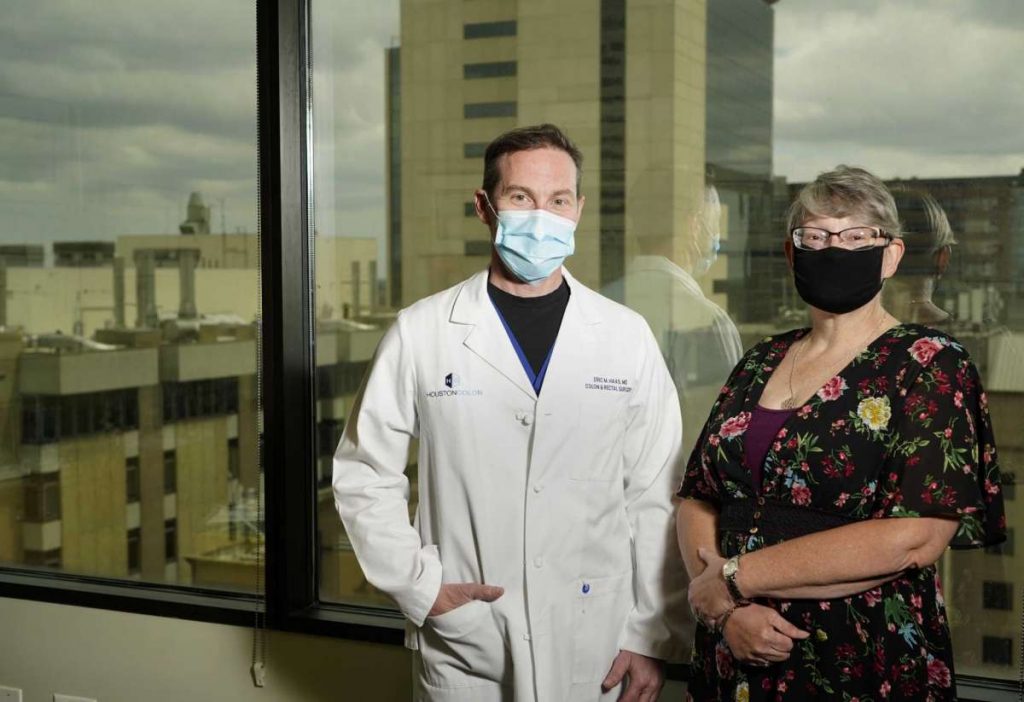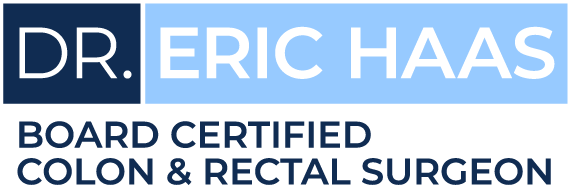‘I had cancer, but cancer didn’t have me.’ How a new procedure helped a Porter woman become cancer-free
Lindsay Peyton, Correspondent
April 12, 2021 | Updated: April 14, 2021 3:57 p.m.
Source URL: https://www.houstonchronicle.com/lifestyle/renew-houston/health/article/I-had-cancer-but-cancer-didn-t-have-me-16094246.php

Yvonne Vives took a pledge last summer.
The Porter resident and her sister, Dawn Adams from St. Louis, were crisscrossing the country, stopping at National Parks along the way.
The two drove through Missouri and South Dakota, went to Mount Rushmore, Yellowstone, the Grand Canyon and Mesa Verde. As the scenery changed, one thing remained constant.
“We had to keep stopping to find a bathroom,” Vives recalled.
It was nothing new; Vives has had regular gastrointestinal issues and diarrhea for 15 years. “It never went away, and I just lived with it,” she said.
Adams, however, took note, especially when her sister’s pain and discomfort seemed more extreme than in years past.
“She made me promise that when I got home, I’d go to the doctor,” Vives recalled.
Her mind turned to her father, who was diagnosed with esophageal cancer in 2015. There was a sickly sweet smell that he carried while battling cancer. Now, she noticed that same smell coming from her own body.
“My concern started to pique,” Vives said.
Cause for concern
Vives stayed true to her word.
In August, after returning from her road trip, she made an appointment to see Dr. Ranga Nathan, a gastroenterologist at Humble Kingwood Endoscopy Center.
Her husband, Hiram Vives, took her for a colonoscopy the following month. Three polyps — all benign — were removed.
Nathan also reported that Vives’ blood work revealed she had nonalcoholic fatty liver disease. He recommended that she lose weight and try the keto diet.
MORE FROM LINDSAY PEYTON: How a Pearland teacher saved her husband’s life with The Bee Gees’ ‘Staying Alive’ and CPR
“I was 222 pounds at that point,” said Vives, who stopped eating bread, pasta and sugar – and added more greens, salads and fish to her diet.
Still, Nathan was most concerned about a mass discovered in her colon.
He referred her to Dr. Eric Haas, a surgeon and colorectal quality chief at HCA Houston Healthcare, to remove the growth.
“At that time, I wasn’t thinking it was anything serious,” Vives recalled. “It was just something that needed to come out.”
The mass, however, turned out to be cancerous.
A new approach
Haas is part of a team of six other surgeons at Houston Colon. A couple of years ago, the team pioneered a new approach to colorectal cancer treatment — the Natural orifice IntraCorporeal anastomosis with Extraction of specimen (NICE) procedure — “an absolute game changer,” according to Haas.
In the past, traditional surgeries required a large incision to remove the cancer, Haas explained.
“You couldn’t walk for a week and there could be wound infections,” he said. The incision could also result in hernias down the road.
The NICE procedure addresses all of these complications.
The robotic surgery relies on multiple small incisions, instead of one large cut in the abdomen. Then, the removal of the mass can take place in the rectum, using the body’s own natural orifice. Eliminating a large incision reduces recovery time, as well as hospital stays. While traditional surgery required between five to nine days at the hospital, the NICE procedure reduces the stay to an average of two nights.
In addition, patients report less pain, which reduces opioid use post-operation. “We’re showing a 60 to 80 percent decrease,” Haas said.
The smaller incisions are less likely to become infected or result in hernias, he added. They also allow patients to forgo the typical post-surgery colostomy bag.
“We rarely have to do the colostomy bag. It’s almost never,” Haas said.
When the first NICE operation was completed in 2018, Houston Colon began sharing its results, publishing papers and hosting webinars on the topic. Before long, other surgeons, impressed with the benefits, took note.
So did patients. When the surgeon recommended the procedure to Vives, she was instantly onboard.
“It’s minimally invasive, and it definitely took a weight off my mind,” she said.
Treatment, recovery and chemo
Vives went in for the NICE procedure at 7 a.m. on Dec. 7.
By that afternoon, the mass had been removed. And it didn’t take long for Vives to recover from the procedure.
“There was no pain,” she said. “I was up and about pretty quickly.”
Vives only spent one night in the hospital and took Tylenol for the pain. In three weeks, Vives returned to work.
“I could have gone back sooner, but I wasn’t mentally ready,” she said.
No more masses have been discovered since the operation.
Vives’ oncologist, Dr. Samer Suki with Millennium Physicians in Kingwood, prescribed 12 cycles of chemotherapy.
MORE FROM LINDSAY PEYTON: Mind over matter: How a retired Texans player beat cancer and a rare brain condition
“I feel like it’s more preventative, just to make sure if there are any cancer cells floating around, they will be killed,” she said.
Vives was proactive about her health, Haas said, even in the midst of COVID-19. He explained that her case serves as an example as to why it is important not to delay care.
“It’s good to hear about someone who does this and moves along with her life,” he said. “You’ve really got to take care of yourself.”
Vives agreed.
“You’ve got to be aware of your body,” she said. “You have to take changes seriously.”
She is grateful to her sister who pushed her to seek medical attention, eventually leading to the removal of her colon cancer.
“This was a mass of cells that grew, and we caught it,” she said. “I feel like I had cancer, but cancer didn’t have me. It’s like I had it and took care of it.”
Down the road
Currently, the NICE procedure is only performed by a handful of surgeons in the Houston area. But Haas expects it to take off.
During COVID-19, Houston Colon was able to make further use of the technique: Last March, when elective surgeries were canceled to keep hospital beds open, colorectal cancer operations had to continue. Being able to quickly perform procedures and limit hospital stays was paramount — and the NICE procedure made that possible.
“COVID actually pushed us ahead,” Haas said. “We really kicked in this technique.”
Before, patients were selectively offered this option. But during the pandemic, it became clear that everyone benefited from shorter hospital stays, faster recoveries and fewer complications.
“Soon, we realized there wasn’t a bad candidate for this out there,” he said.
Vives is in the midst of her chemotherapy treatments. She plans to finish in August and have another colonoscopy at end of the year.
Her general health has improved since her diagnosis, she added. She credits following keto recipes, exercising and drinking more water for helping her get her weight down to 170 pounds.
Already, she has a few trips planned for this summer with her sister, including a trek from Chattanooga to New Orleans in her RV.
“I’ve got a lot of traveling I still want to do,” she said. “I’ve got quite a lot to live for.”
Lindsay Peyton is a Houston-based freelance writer.
